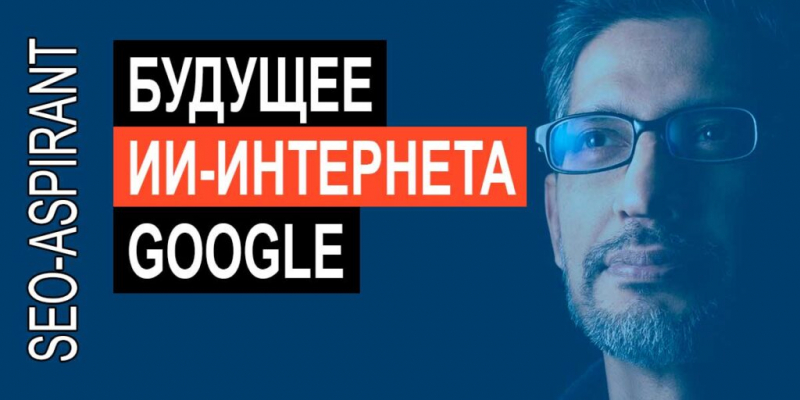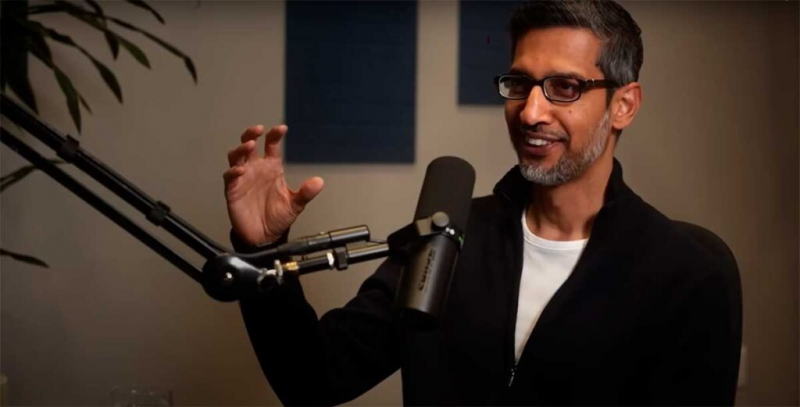Google CEO Sundar Pichai responded to webmaster concerns about the impact of recent changes in search and clarified his position on the web ecosystem and how it fits into what he calls the “next phase of search.” The responses were given in the context of a recent interview on the Lex Fridman podcast.

Recommendation of the Month: DontDrop: $250,000 at Stake – Trade Every Minute or Every Day, Choose Your Own Pace and Get Up to 1000 USDT in PI, DOGE, XRP, SOPH, HUMA, PEPE, ARB, WCT, and TON!
- The Modern Web Ecosystem and AI
- Is Artificial Intelligence the Next Chapter of Search?
- Search is evolving towards context
- AI Advertising
- Will AI mode replace everything else?
- Conclusions
- Lex Fridman’s interview with Sundar Pichai
The modern web ecosystem and AI
Lex Fridman asked Pichai in the interview if Google would continue to direct users to a human-made web page. Pichai replied that supporting the web ecosystem is something he understands very deeply.
Fridman asked:
“The idea is that the AI mode will still lead you to a human-created web page?”
Pichai replied:
“Yes, this will be one of our core design principles.”
Friedman added that he’s asking more questions about AI responses and AI mode and exploring them, but he still wants to get to a “human-created resource.”
Pichai responded:
“This helps us provide better recommendations, right? You know where people are much more likely to find what they’re looking for. They’re exploring. They’re curious. Their intentions are being met more… That’s what all our metrics show.”
The interviewer added:
“It makes people who build websites nervous. Journalists are already nervous.”
Sundar responded:
“Look, I believe that news and journalism will play an important role in the future, and we are very committed to this. In fact, I believe that over time, we will be able to stand out as a company because of our commitment to this role. So I definitely appreciate this very much, and we will continue to prioritize these approaches in our design.”
Is artificial intelligence the next chapter of search?
Pichai noted that the use of AI in search is “encouraging” and called it “the next chapter of search,” emphasizing that AI search is inevitable and will not go away.
Search technologies are constantly evolving. The most notable effects of this have been seen in the 2004 Florida update, the 2012 Penguin update, the 2018 Medic update, and the more recent series of useful content updates, which have led to major changes in search result rankings. However, none of these changes have been as ambitious or significant as what the human-generated Web is facing with the introduction of Google AI Overviews and AI Mode.
As someone who has been in search marketing for over 15 years, I believe that Pichai may be underestimating the situation by calling it “the next chapter of search.” It’s possible that Google AI Search is a whole new book.
Search is evolving towards context
Lex Friedman noted that Google was famous for its simple structure and ten hyperlinks, adding that Google was now starting to “play with it” and that there was likely some debate within the company.
Pichai subtly corrected Friedman’s assumption that Google was moving away from the ten blue links, which had been outdated for almost 15 years, explaining that the shift to mobile devices had led to the abandonment of the classic scheme. He emphasized that development is happening alongside technological progress and user expectations for answers, not just links.
Sundar emphasized:
“Listen… in a sense, when mobile internet came along… people wanted to get more answers, so we’ve been constantly evolving this tool. But you’re right: right now… this evolution is happening because the underlying technologies are getting much more powerful. Now AI can givea lot of context.
But one of our important goals in design is when you go to Google Search. You get a lot of context. But at the same time, you’re still searching for information on the internet. This will remain the case in AI mode. In AI responses and so on.
I also believe that compared to our previous conversation, we still provide access to links, but imagine AI as a layer that provides you with a summary of context. Perhaps in AI mode, you can have a back-and-forth dialogue with it while you’re searching.
But through all of this, you’re learning about what’s out there in the world. These fundamental principles don’t change: we’re building models for this—our best models use search as a profound tool.
In fact, for every query you make, we’re performing multiple searches, gathering knowledge so that you can consume the information you need—that’s how we see it.”

Advertising in AI
What is not immediately obvious is that Google views advertising as a form of content that is relevant to users. Advertising is not perceived as intrusive, but rather as something that is important in the context of the user’s interests.
Friedman also asked Pichai about AI-powered ads. Pichai replied that they were currently focused on optimizing the “organic experience,” but also addressed the concept of context.
Pichai’s response:
“There are two things.
In the early stages of the AI regime, obviously, more attention is paid to the organic experience to make sure that we are doing everything right. I believe that the main value of advertising is the ability to provide access to services to billions of people.
The second reason why we have always taken advertising seriously is that we consider advertising to be commercial information, but still information. Therefore, we apply the same quality metrics to it.
I think that with the AI mode – and as part of our previous conversation – AI itself will help us understand the best way to do this over time.
Given that we provide context around everything, I believe we will have more opportunities to explain, “Here is the commercial information.” For example, today, a podcaster does this in certain places and probably understands what is best for their podcast.
There are aspects of this approach, but I believe that people’s basic need is to appreciate commercial information. Businesses are trying to connect with users. All of this doesn’t change in the moment with AI. But you’ll see: we’re rethinking it.”
Will AI mode replace everything else?
Lex asked Pichai if he could see a time when AI mode would become the interface for filtering the internet, asking about the future – whether it would completely replace the current combination of AI responses and ten classic blue links (and kill classic SEO in the process).
Pichai responded:
“Our current plan is for the AI mode to exist as a separate tab for users who really want to try it. However, it has not yet reached the level of our main search pages. As we develop new features, we will gradually integrate them into the main page. You can think of it as a continuous process, where the AI model provides you with the latest advancements. But the features that work well will continue to gradually appear in AI responses in the main interface.”
Conclusions
Lex Friedman’s questions reflect the concerns and negative attitudes of many website owners regarding Google’s evolution from providing answers to linking to the open web.
Sundar Pichai has repeatedly stated that Google intends to continue directing users to the human-generated Web, explaining that AI provides more context and encourages users to explore topics deeper on the internet.
However, these statements are undermined by Google’s delays in accurately tracking transitions from AI responses and AI mode. It seems that website owners are being left behind in the company’s attention, leading to growing skepticism among webmasters regarding Google’s commitment to the human-generated Web.
While it’s encouraging to hear Google’s CEO make strong statements about their commitment to the internet ecosystem, I believe that more positive actions (rather than just statements) from Google are needed to address the negative sentiment.
